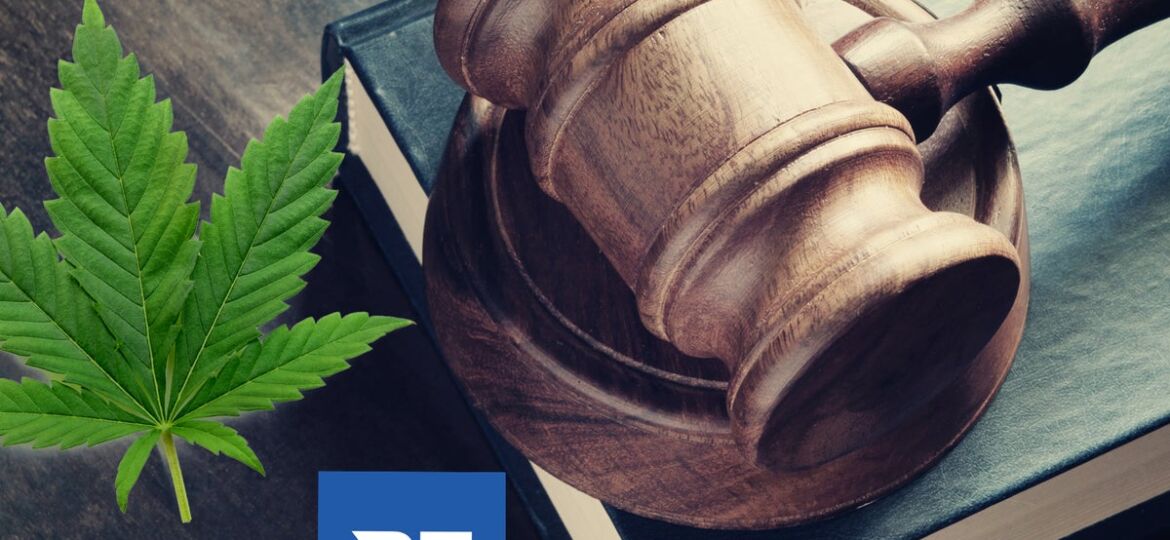

U.S Cannabis Cultivators Producing Nearly 50 Million Pounds Of Marijuana Per Year
In 2022, the total amount of marijuana grown both legally and illegally is expected to surpass 48.8 million pounds, according to Whitney Economics’ calculations.
2022 U.S. Cannabis Supply Report anticipates that the amount of legally cultivated cannabis will exceed illicit grows in early 2026, reported Marijuana Business Daily.
Moreover, the Portland, Oregon-based research firm has estimated that the total legal cannabis sales will hit $29.3 billion by the end of this year and $81.6 billion by 2030.
Beau Whitney, the company’s chief economist, said that the legal cultivation capacity is more than enough than the total country’s demand.
Whitney told Green Market Report that nearly half of the cannabis produced in 2021 came from California, adding that setting up new cultivation production operations in Michigan, Ohio and Pennsylvania is not needed.
“You’ve got almost four million pounds of supply coming out of Oregon, you’ve got 22.2 million pounds coming out of California,” Whitney said. “That’s half the total supply of the entire U.S.”
Mississippi Medical Marijuana Market Could Launch In Early 2023
Gov. Tate Reeves signed cannabis legislation into law in February, making Mississippi the 37th state to legalize medical marijuana.
Some four months later, medical marijuana patients started submitting their applications for a card in the Magnolia State, and so far, 900 Mississippians have either applied or are already certified,according to WLBT.
However, some of those trying to apply for the card get confusing messages.
Mississippi Cannabis Patients Alliance CEO Angie Calhoun gave more insight on the topic.
“So the patient will actually get an approval notice from the Department of Health,” she said. “And then they will get a second email that says your card is deactivated.”
Calhoun also said it’s all part of the application process.
“As soon as the Department of Revenue opens those dispensary doors, the Department of Health, they stay in close contact with each other, they will activate your patient card,” she added.
Calhoun also signaled that medical cannabis sales are poised to launch early next year.
“We’re hearing that the testing facilities should be ready and operable come the middle of December,” she added. “And so that means that hopefully, the Mississippi Department of Revenue will open the dispensary doors come the first of the year.”
Canadian Province Of Newfoundland & Labrador Removes Vape Ban
The government of Newfoundland and Labrador has ended a ban on sales of cannabis vape products, reported Marijuana Business Daily.
The move partially reverses the government’s decision from 2019, but a restriction on added non-cannabis flavors is still enforced. It follows a review of the province’s cannabis industry by the government and the Newfoundland Labrador Liquor Corp. (NLC).
“Given the significant portion of the illicit market that vape represents, we believe this is a positive step in continuing to capture market share from illegal operators,” Peter Murphy, Newfoundland Labrador Liquor’s chief merchandising officer wrote in a statement to the outlet.
Virginia Officials Seek To Put An End On Stoned Driving
Last month, the Virginia Cannabis Control Authority (CCA) issued a press release revealing that some residents are undermining the dangers of being cannabis-impaired while driving.
The survey, conducted by public affairs consulting company Stratacomm obtained more than 750 responses. The results showed that more than one in 10 Virginians (or 11%) have driven at least once a month in the past year after consuming cannabis. Moreover, some 47% of cannabis users don’t necessarily have a plan for a “sober ride,” and 24% confirmed being a passenger in a vehicle operated by a driver under cannabis influence more than once in the last year.
To tackle the growing issue, state officials are planning to meet again and come up with a set of solutions.
“The Virginia Crime Commission — an arm of the General Assembly tasked with studying issues of criminal law and making recommendations — [has] discussed some potential steps police and sheriff’s offices can use to crack down on driving while high,” the Virginian-Pilot reported adding that the “commission is expected to meet Dec. 5 to draft their proposals for the legislative session that begins in January.”
During the commission’s Nov. 16 meeting, lawmakers discussed amending the law to allow roadside screening devices that can test saliva for the presence of marijuana and other drugs.
Photo: Benzinga Edit, Source: Shutterstock

